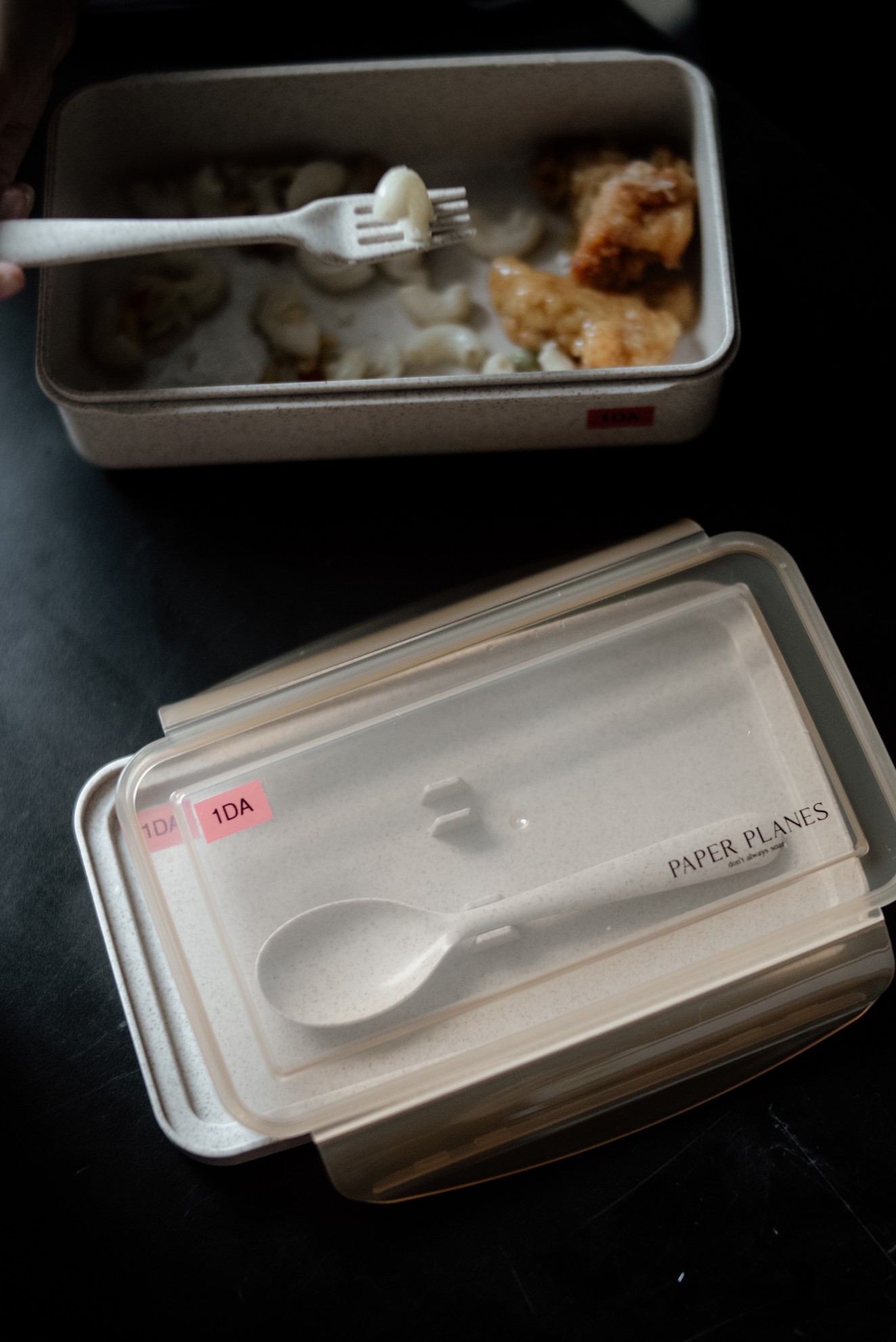NTU film students are making filmmaking more environmentally friendly with reusable lunch boxes. They aim to reduce and reuse materials in film production for their final-year project. By implementing reusable lunch boxes, secondhand wardrobes and props, and energy-efficient lighting, these students inspire the industry.
Replacing Disposables with Reusable Lunch Boxes

Source: Paper Planes Film
Leading the charge behind the sustainable initiative is producer Terry Tan De Hao. Inspired by his senior’s efforts to implement a no-plastic-bottle policy on set and establish on-site recycling points, Tan aimed to take the idea further.
The 25-person crew committed to drastically reducing the use of disposables by opting for buffet-style meals served on metal trays and providing reusable lunch boxes to each crew member. The containers were collected, washed, and dried for repeated use, minimizing waste.
Additionally, excess food was taken home in crew members’ personal reusable containers, reducing food waste.
This practice alone helped the team eliminate approximately 800 disposable containers and cutleries throughout the five-day shoot.
Furthermore, each crew member received a thermos water bottle, effectively replacing 250 single-use plastic bottles by utilizing a water dispenser available on set.
Secondhand Wardrobe and Props
To further their sustainability efforts, the team collaborated with Cloop, a local clothes swap organization, for their costume needs.
Instead of purchasing new items, the team sourced 150 secondhand sets of apparel from Cloop, providing a second life to used clothes and avoiding the need for 15 sets of new clothing.
Additionally, the team repurposed 25 upcycled set decorations from their own households, minimizing the need for new props and further reducing waste.
Greater Workload and Green Measures with Reusable Lunch Boxes
Implementing eco-friendly practices came with additional responsibilities for the crew. The washing of lunch boxes, in particular, required extra effort and time.
To manage the workload, the production team hired an additional member, and they undertook thorough planning, including selecting a filming location with water points and sinks.
The team appointed a Green Officer who was responsible for overseeing the recycling corner and assisting crew members in refilling their bottles.
These efforts took inspiration from similar practices adopted by production crews abroad, particularly in European countries where sustainability guidelines and grants are provided for film crews.
Reusable Lunch Boxes: An Overall Success
Source: Paper Planes Film
Despite encountering challenges during the filming process, such as limitations during outdoor shoots, the crew widely supported the initiative. Months after the project’s completion, many crew members continue to use their lunch boxes and water bottles. Basically, indicating the positive impact of sustainable practices.
Producer Terry Tan De Hao believes that their initiative can serve as a blueprint for other filmmakers to follow. Hence, demonstrating that even smaller teams can successfully implement eco-friendly measures.
Tan hopes that larger industry players, armed with more resources and budgets, will be inspired to adopt similar practices. Ultimately fostering a more sustainable future for film production.
Conclusion
NTU’s film students have proven that sustainable filmmaking is not only possible but also practical. Embracing reusable lunch boxes, secondhand wardrobe and props, and energy-efficient lighting, they showcase eco-friendly practices on set.
Their success inspires the industry to prioritize sustainability and make a positive environmental impact. The film industry can lead by example, reducing waste and inspiring other sectors to follow suit.
ALSO READ
10 genius tips to make packing your kid’s lunch box stress-free
Lunch Box in Singapore: The Best Picks for Your Kid’s Midday Meals


